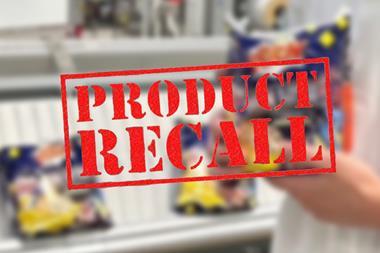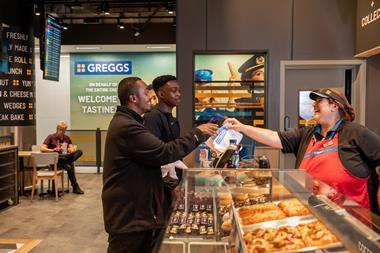
British exporters have been urged to prepare in advance for the government’s new customs declaration process to prevent trade chaos later in the year.
From 30 November, all exports declarations must go through the new Customs Declaration Service (CDS), the HMRC platform replacing the government’s legacy CHIEF system.
But the international trade sector is “nervous” that exporters will face the same “huge challenges” that importers dealt with last year when they began submitting import declarations via CDS, said Matthew Bradley, MD at digital trade solution company CNS.
Not only is the new CDS system more complex to use – it requires exporters to fill out additional data fields in order to get a certified customs declaration – it is also known among customs agents for crashing often, causing delays at UK borders and increasing costs for traders.
“There are some issues like outages on the system that are impossible to prepare for, but there are a lot of issues traders are now aware of and various learnings from last year, which mean there are known steps that can and should be taken,” Bradley said. “The broader industry should learn from this and start testing and preparing now.”
The repercussions of being unable to submit valid and compliant declarations included cargo delays, increased costs and frustration for customers and staff, he said.
Steve Cock, consultancy director at Kent-based The Custom House, has previously told The Grocer the new declarations system was “appalling” and “broke down all the time”.
Cock is one of many in the customs and logistics sectors to have already taken to social media to air frustrations about migrating to the new software.
“On behalf of all UK customs agents, I would like to thank HMRC for another fun Monday dealing with the fallout of its monstrously expensive and failing declaration platform,” he posted on LinkedIn in April, when a CDS system fault resulted in a backlog of lorries in the Dover as well as Ashford and Sevington regions.
Intersped Logistics MD Ray Murphy also called CDS “an absolute disgrace”. Another commenter working as a global trade compliance advisor wrote the adoption of the new software had been “very painful”.
However, Bradley pointed out that last year’s transition process had gone smoothly for importers that trained their staff and prepared through test environments before the deadline.
Nikki Sayer, MD at Teesside-based Casper Customs, said she found CDS a better system than its predecessor and that despite the adjustment period she had not encountered any major issues throughout the transition.
She said most businesses should be acquainted with the system by now, adding she did not anticipate delays on the same level as last year because dealing with imports declarations was a more complex process than for exports.
“I don’t know about other businesses, but we plan well here,” Sayer said. “As soon as there’s announcement of some changes, we’re on it so that we’ve got plenty of time to do so.
“So if you plan well enough then we shouldn’t find it a problem really.”
CNS’s Bradley agreed: “The reassurance of knowing you are as prepared as you can be may put end customers at ease and may even help you sleep better at night – which is something we think is pretty important in our extremely stressful industry.”



















No comments yet